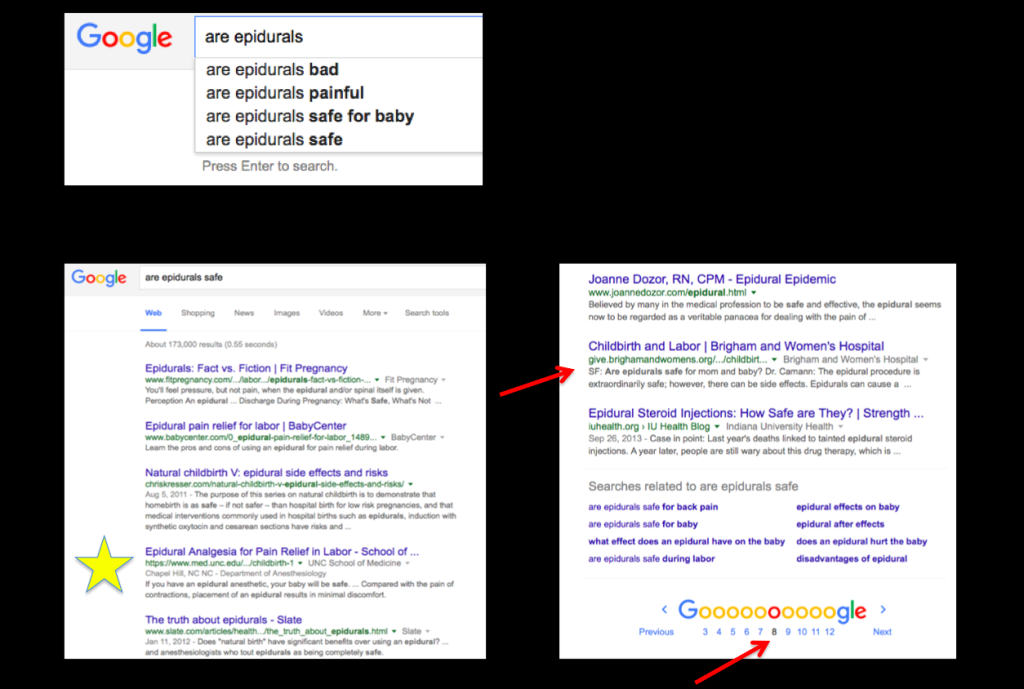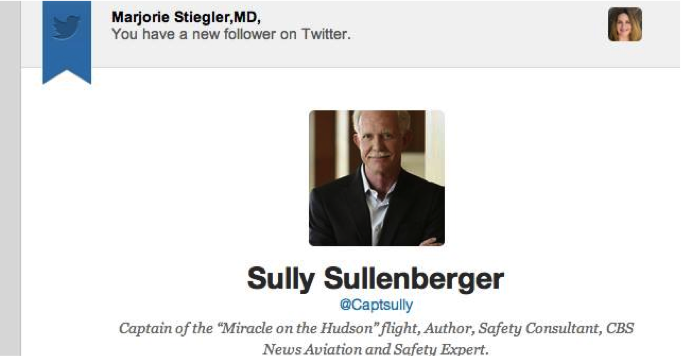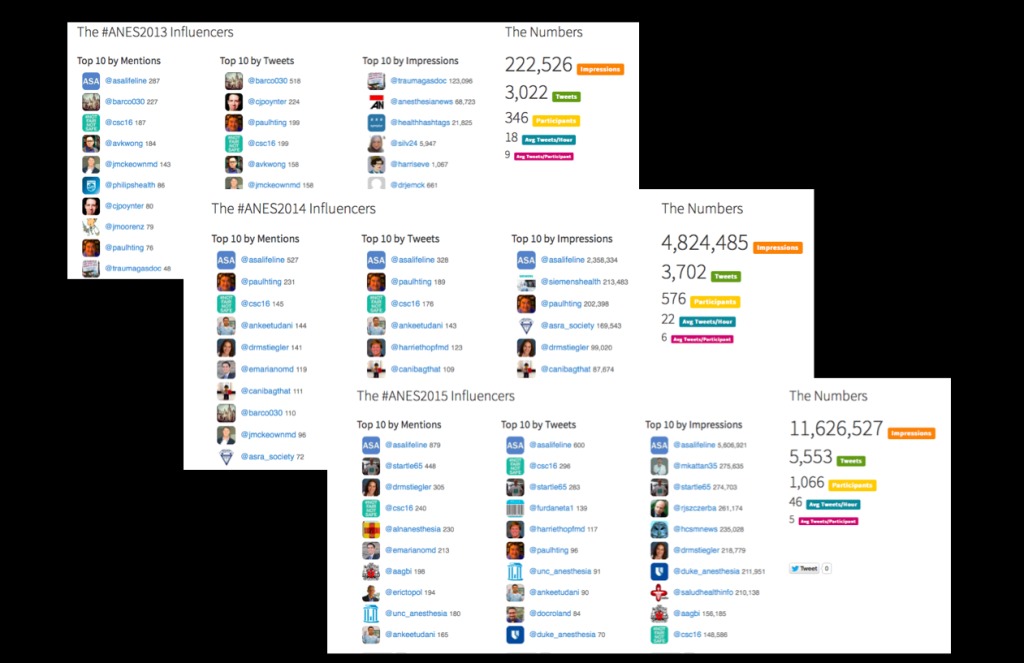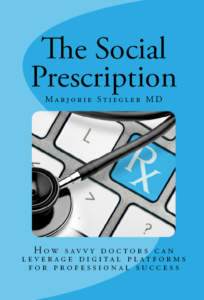Yesterday, I gave a quick digital strategy update to my group, and inadvertently sabotaged* the rest of my academic day fielding questions from colleagues:
“Why should we bother with social media? What’s the easiest way to do the bare minimum? What platform should I choose if I’m only going to do one? Isn’t this shameless self-promotion? What if I do something wrong or embarrassing and it lives forever on the web to haunt me? Can you really control what Google displays about me as a person, or us as a group or institution?”
Answering each of these questions is important, and is also obviously why healthcare social media consultants are in demand!
Let’s just tackle the first question. Why should doctors use social media?
- Curate a library. Posting links to news articles, journal articles, online resources, and academic meeting proceedings or abstracts is an extremely easy way to keep track of content that interests you. Added bonus – it is also extremely easy to share with others who may also be interested.
- Find collaborators. Science is a team sport, and you need not be limited to professional colleagues in your own institution or whom you already know. There’s a wide world out there with likeminded professionals. Connecting with them is just a tweet away.
- Make a bigger difference by disseminating your work. If you are an academic physician, you likely are already creating educational or research content for your own trainees and colleagues. Why not share that with a broader audience?
- Promote health literacy. Patients look to the internet to find answers to their medical questions. Turns out, they aren’t reading JAMA or the NEJM. In the absence of friendly physician-created content – such as blog posts, open access papers, slideshows, recorded lectures- what will they find? If they are searching for information on whether labor epidurals are safe, with one exception on the first page, they’ll have to go all the way to the bottom of page 8 to find physician-authored, hospital-based resource.

- Engage in professional advocacy. Though most of us find it unpalatable to acknowledge, healthcare delivery is a business. Whether negotiating your department’s annual budget with the hospital or addressing CMS requirements, as the saying goes, if you’re not at the table, you’re on the menu.
- Influence policy. Lawmakers look to physicians to provide expert opinion and testimony on many issues, especially those that involve healthcare delivery. You can help more patients that just those in your daily practice by being involved in policy, whether local, regional, or national.
- Grow your practice by helping patients find you. When someone searches “best [your specialty] in [your area]” does your name or your practice group appear at the top? If not, a little bit of web presence can go a long way towards influencing the way Google ranks you. (I know, I know – now you want to know how. It is easier than you think!)
- Recruit the best partners and associates by showcasing the collegial professional environment (e.g. photos of retreats, team building, or other social activities), major perks of working there, and local flavor.
- Recruit the best partners and associates by showcasing (wait, did I already say that?) the wonderful accomplishments of your group and your institution. No one is reading your CV, but they are checking out your Facebook or LinkedIn. Make your highlights easy to find, easy to scan, and easy to appreciate the significance of each activity.
- Recruit the best students and residents to your training program. Remember, they have to find compelling reasons to apply before they enter your halls and you get to show them how great you are. This is just as true for tiny programs as for the powerhouses. Many excellent candidates are turned off by negative reputations (often erroneous) of some of the “top” programs. Anything you plan to share with candidates on an interview to pique their interest in your program should also be ranking proudly at the top of Google.
- Make surprising connections, like this one.

- Those surprising connections just might lead to something scholarly, like this, and something even more important, like this.
- Manage what patients see about you (and yes, they ARE looking). Most physicians are listed on literally hundreds of physician rating websites; many of those physician profiles are blank, very sparsely populated, or contain frank errors. Obviously, negative reviews, news coverage of a lawsuit, or public disciplinary actions from your medical board are very seriously damaging even if they are unfounded. A little bit of active web presence can outrank those meaningless or harmful links. Professional reputation companies charge tens of thousands of dollars to do this for you.
- Manage your professional reputation. Prospective employers are looking too. Everything in #13 applies.
- Share your passion. Whatever you are doing in medicine and/or academics, you probably love it (because let’s face it – there are plenty of careers out there that do not require as much school, debt, stress, liability, or night/weekend/holiday hours). If you love it, why not share it with as many people as possible? Sharing your expertise is service to others. It isn’t spam. No one has to follow your blog or your social media updates if they don’t want to. Come to think of it, you could stop reading this right now…
- On that note, stop thinking of social media and web activity as unsavory self-promotion. For one thing, a successful academic career does depend upon people recognizing your work and your name. For another, sharing your ideas with as many people who might possibly benefit (even if that is by challenging you or taking another view) is a good thing. Disseminating knowledge and advancing science are core reasons we publish in journals. Even the best academic journals have a ridiculously low readership compared to the web. Do both.
- Make your big projects easier. You know that review paper you plan to write, or that big talk coming up next year? What about the webinar you’re giving in a few months? Tackle small chunks of your intended final product by writing a short blurb each week on your blog (or LinkedIn, or Google+, or whatever) and your major projects will practically complete themselves.
- Give your boss (or future boss) cold hard performance analytics. Medicine is a tough field to evaluate. Academics place high value on being a primary author published in a major journal. But what if you could show the number of times your papers have been read or cited, and how you rank compared to your colleagues in that regard? Perhaps showing that you have thousands of website visitors each month or a similarly high number of social media followers will carry some academic currency. What if your work is the most-talked-about presentation at a major academic meeting? Websites like ResearchGate and symplur.com give you the proof.

- Learn! It is hard enough keep up with all of the research and healthcare news without having to visit each individual source on a regular basis. Fortunately, most major journals and news sources are on social media, and with a simple click of the “follow” button, you can stay in the loop with much less effort.
- Know what your patients are reading. Whenever I speak about #19 at least one person makes the observation that not everything in medical journalism is accurate (dare we say it is sometimes sensationalized?). So while you may or may not actually learn new medicine from those posts and links, you will learn about what your patients are learning, and you’ll be much more prepared to discuss the content when your patient begins, “I was on the internet, and I read…[insert your field’s current controversy here]”
- Advance your career. Make it easy for people to find YOU when they search for an expert in whatever it is that you do best. Think about the most famous people in your field, and do a quick Google search. I’m willing to bet that the top results are not textbooks or journal articles, but more friendly content – interviews, press releases, videotaped presentations on (gasp!) YouTube, and so on. And, I’m willing to bet that those famous folks still have a bunch of blank or sparsely auto-populated physician rating sites littering their search results and diluting their Google juice.
The influence of twitter participation at the largest international meeting of my specialty has increased over 5000% in the past two years. This trend says one thing clearly: if you haven’t started already, you are way behind. It’s time to get on board.
If you’re reading this, there’s a good chance you use social media. Tweet me and let me know – what motivated you to get started?
*Update: This post was published in 2015…Since then, I’ve solved ‘not enough time to help everyone’ problem with my new book The Social Prescription, and my live interactive course with the same name. Enjoy!










